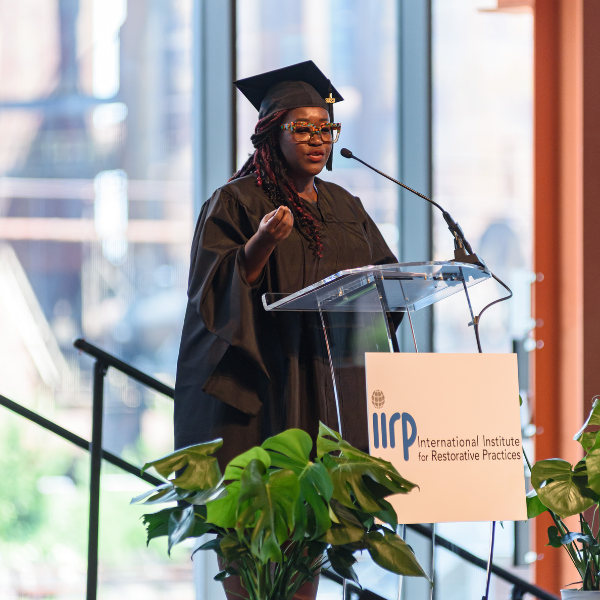Become a compassionate leader, empathetic listener, and community builder.
Graduate students at the IIRP are catalysts for change, putting what they’ve learned into practice across professional settings. The study of restorative practices draws from a range of disciplines. Our graduates problem-solve in a way that fosters cohesion and creates conditions for collaborative teamwork. The coursework of this program allows learners to develop skills in emotional intelligence, self-reflection, and conflict management, equipping them to proactively build more effective relationships and positive community culture.
Within the degree, students can concentrate on specific fields, as well as trailblaze their own path and expand the field of restorative practices by adding the thesis option to their master’s degree.
Learning Outcomes
- Explore a broader lens of restorative practices.
- Investigate how to lead people more effectively and build diverse and resilient teams through a focus on responsibility, respect, and inclusive participation, sparking creativity and innovative ways of thinking.
- Curate the skills to uncover the root causes of conflict and facilitate complex conversations to minimize harm, repair relationships, and identify solutions.
- Enhance critical thinking and communication skills to become more adept at influencing change.
Program Overview
Requirements
This program requires ten courses: four required courses and six electives. Courses taken to complete any of the graduate certificate programs count toward the Master of Science degree.
- RP 500 Basic Restorative Practices or RP 504 Foundations of Restorative Practices
- RP 525 Restorative Practices in Action
- RP 610 Evaluation of Research
- Six general electives
- RP 699 Integrating Seminar (once all other coursework is complete)
Details
- Most program courses are 100% online with a few blended options with courses starting in Fall, Spring, and Summer months. Click here for a full list of course offerings.
- Supported by faculty and fellow students, course assignments help you put your learning into practice.
- Most students complete the program in two to three years.
- There are no additional costs associated with choosing a specialization for your Master of Science in Restorative Practices. Click here for our Transparent Tuition.

